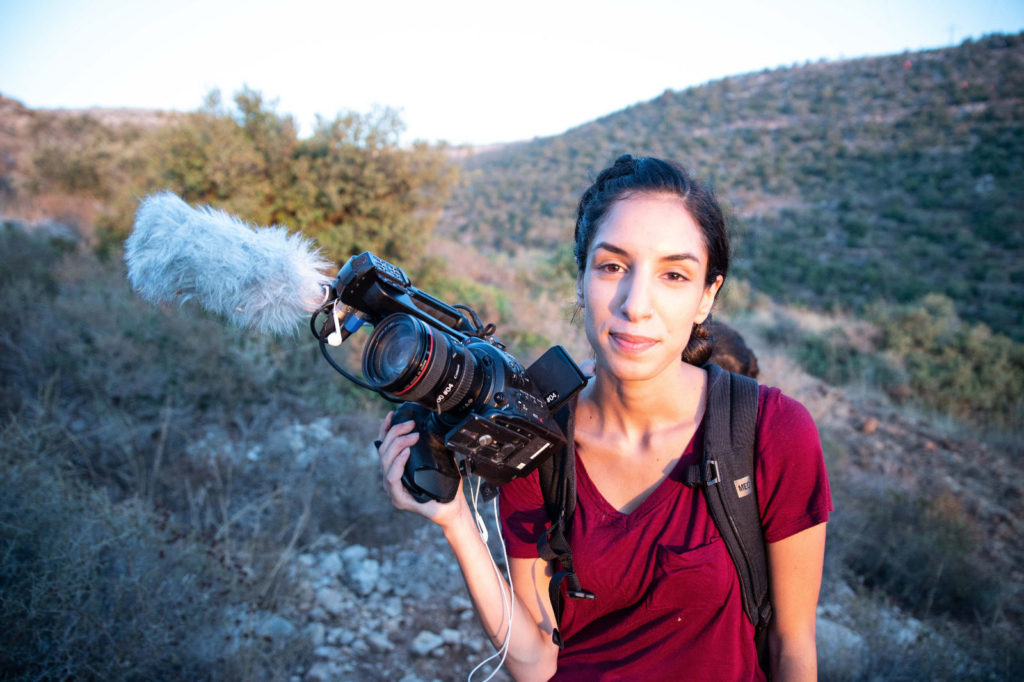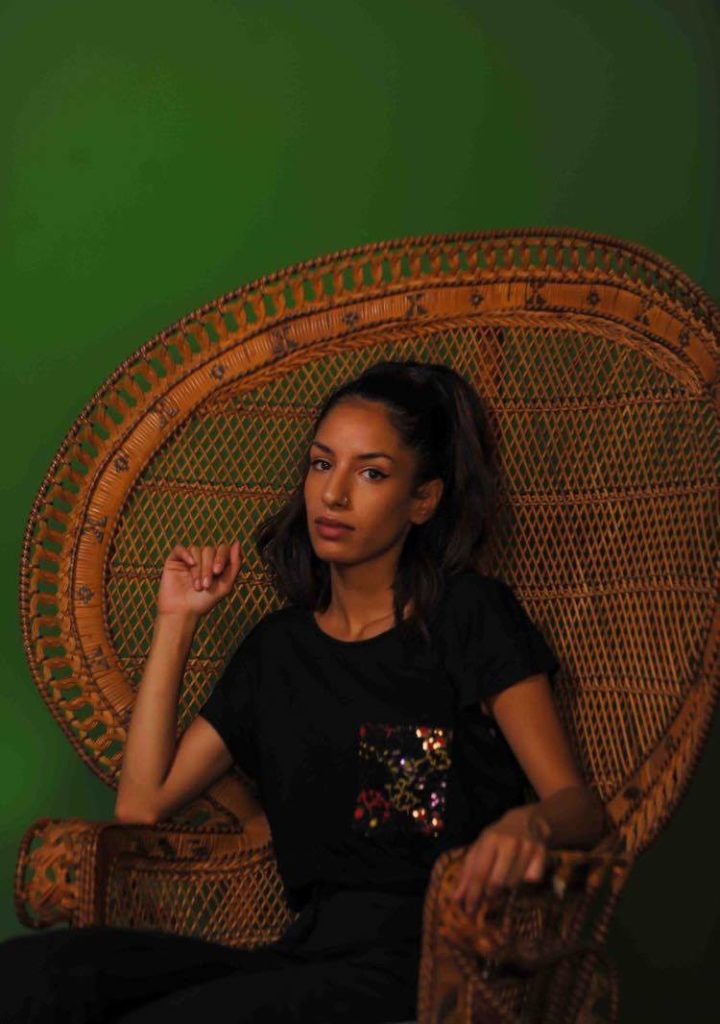Palestinian-Canadian artist and activist Rana Nazzal Hamadeh makes directorial debut at film festival

When Rana Nazzal Hamadeh asked her father what he wanted her to bring back from Palestine, he asked for soil. Fifteen years later, she says he still displays that soil as a centrepiece in his house; as a Palestinian refugee, her father cannot return to Palestine.
Since then, many family, friends and other Palestinian refugees have asked her to bring them soil.
“It’s actually very strangely common in the Palestinian diasporic experience to ask for soil,” she says. “I think it epitomizes the land that was lost and the land being the most important thing that was lost.”
Nazzal Hamadeh says she feels she could build her life’s work based on people’s connection to the soil of their homeland. In fact, she’s already started. Nazzal Hamadeh recently graduated from Ryerson’s MFA in documentary media, focusing on exhibition. Her final exhibit, to be shown later this fall at the Ryerson Image Centre, is titled “1/1000th of a Dunam.” It will display the physical soil she’s collected throughout Palestine.
Carrying on the theme of peoples’ connections to the soil of their homeland, Nazzal Hamadeh completed her first film, “Something From There.”
“The film follows my dad’s voice as he answers the question ‘why did you ask for (soil)?’”
“Something From There” premiered virtually at the Toronto Palestine Film Festival on Sept. 25, in the festival’s inaugural film residency. The residency is a joint program with the festival, Trinity Square Video and the Liaison of Independent Filmmakers of Toronto.
While this is the first film she’s completed, Nazzal Hamadeh has been involved with TPFF for a few years, both as an attendee and a volunteer. She’s been active in the Palestinian arts community for a long time.
Nazzal Hamadeh says she realized at TPFF she wanted to take her work in a new direction, away from more traditional documentary.
“I had this revelation that I want to create artistic works that are not using that traditional voice, that are not trying to explain something or convince anyone of anything,” she says.
Nazzal Hamadeh says she isn’t a very big filmmaker, but considers herself more of an artist and activist which, for her, are completely connected.
“The only thing that’s kind of different is that in the activist voice, you’re trying to simplify things so they can be understood.” Nazzal Hamadeh says.
“You also are making an argument, you are trying to prove something or teach someone something, there’s that kind of simplicity to activism, whereas I think artists have this ability to, or opportunity to, complicate things and get people to think about things differently.”

Before coming to Ryerson for her master’s degree, Nazzal Hamadeh completed her undergraduate degree at Carleton University in human rights. She says the program was critical for her, with a focus on decolonization that strongly informs her art practice. She wrote her honours paper under the supervision of an Indigenous decolonial scholar.
Much of Nazzal’s work as an activist has been in solidarity with Indigenous peoples in Canada. Earlier this year, she helped organize a statement in support of the blockades in Wet’suwet’en in partnership with two people living in Palestine’s West Bank. Under the hashtag #palestiniansforwetsuweten, the group circulated the statement and social media posts within Palestinian communities to inform and get Palestinians involved with Indigenous issues in Canada and beyond.
“Part of the outcome of colonization has been that for those of us struggling with our own issues and feeling stripped of agency, we can forget we are also agents who can act in solidarity with other peoples.” Nazzal Hamadeh says. “I think growing that is actually really essential because it not only offers our solidarity with other people, it reminds us we are not just victims of something.”
One of Nazzal Hamadeh’s earliest experiences with Indigenous solidarity activism came in high school when she and her roommate drove up to a reserve in northern Ontario to participate in a blockade demonstration. She says the police were there firing tear gas.
“It was a very similar response that we would see to a protest in Palestine.”
The similarities between the Indigenous and Palestinian struggles against colonialism are also reflected in the reception of Nazzal Hamadeh’s artwork.
“I’ve found that Indigenous folks have been the most able to understand this idea of holding soil,” she says. “It’s all about the practice of taking soils from homeland and bringing it with you somewhere else as a way to remember things and to defy the official histories that you don’t belong to this place. It’s a way of asserting belonging.”
In the process of pitching her project, Nazzal Hamadeh says many curators told her she didn’t need the physical soil in the exhibition and instead she could find creative ways to represent the soil.
“That showed me who gets it and who doesn’t,” she says “A lot of people didn’t get that the materiality is important. I mean it’s actually the very centre of it.”
In “Something From There,” Nazzal Hamadeh’s father can be heard saying a photo is a static thing whereas soil can be touched, held and smelled. Nazzal Hamadeh says the same soil shown being gathered in the film will be on display in “1/1000th of a Dunam,” which showcases soil from 30 different locations across Palestine.
Her exhibit at the Ryerson Image Centre opens Oct. 28 and runs until Nov. 28, with a virtual artist talk on opening night.
